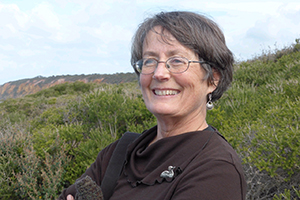Judith Brett

I always wanted to go to university. My father had, and so had his sister. They grew up on a dairy farm, but their parents believed strongly in education and made sacrifices so that they could finish high school and go onto university. I was a great reader and did well at school. I started an Honours Arts degree at Melbourne University in 1967. These were golden years at Australian universities, with Honours students doing extra subjects from first year onwards. In my first year I had 24 contact hours! I studied for an Honours degree in Politics and Philosophy.
These were also days of intense political activity on Campus, with opposition to conscription and the Vietnam War, and later the beginnings of second wave feminism and sexual liberation. This political context gave a radical edge to our studies, as we tried to understand the dominant power structures and how they might be different. I was not much of an activist, but I came to believe that intellectual work should contribute to a better-informed and more just and equal society. This laid the foundations for my later writing as a public intellectual.
For five years in the 1980s I was privileged to edit the literary and cultural magazine, Meanjin. Editing this I learned how to write for a readership beyond the university and I got to know many writers and thinkers. One of these was Dennis Altman, who was already working at La Trobe, and he suggested that I apply for a Lectureship in Australian Politics, which I did. I taught Australian Politics, and public policy at La Trobe from 1989 until I left in 2012 when the university was re-structuring the Faculty.
The Politics Department I joined in 1989 was a joy to work in, with talented, hardworking and co-operative colleagues, who were gifted and dedicated teachers. Many also shared my conviction that politics academics should use their knowledge and skills in critical thinking to engage with the key political issues of the day. I was very proud to work in the same department as Dennis Altman, Robert Manne, Joseph Camilleri, Robin Jeffrey and John Fitzgerald. I was also proud of the books I published during my time at La Trobe, especially my first book, Robert Menzies’ Forgotten People, which won many prizes. Although I was not a supporter of Robert Menzies, I wanted to understand why he had been such a successful Prime Minister: what experiences had made him and the people who voted for him. This turned out to be the first of three books I would publish on the Australian Liberal Party and its leaders.
My last few years at La Trobe were not happy ones, as the Faculty was restructured in ways which I believed risked much of what my colleagues and I had built. I accepted a redundancy and so was able to spend more time on my writing – as well as with friends and family. It is very important, I think, to always keep a full life outside of work. Since I retired I have published a new biography of Alfred Deakin, The Enigmatic Mr Deakin, and am now working on a book on why Australia has compulsory voting.
